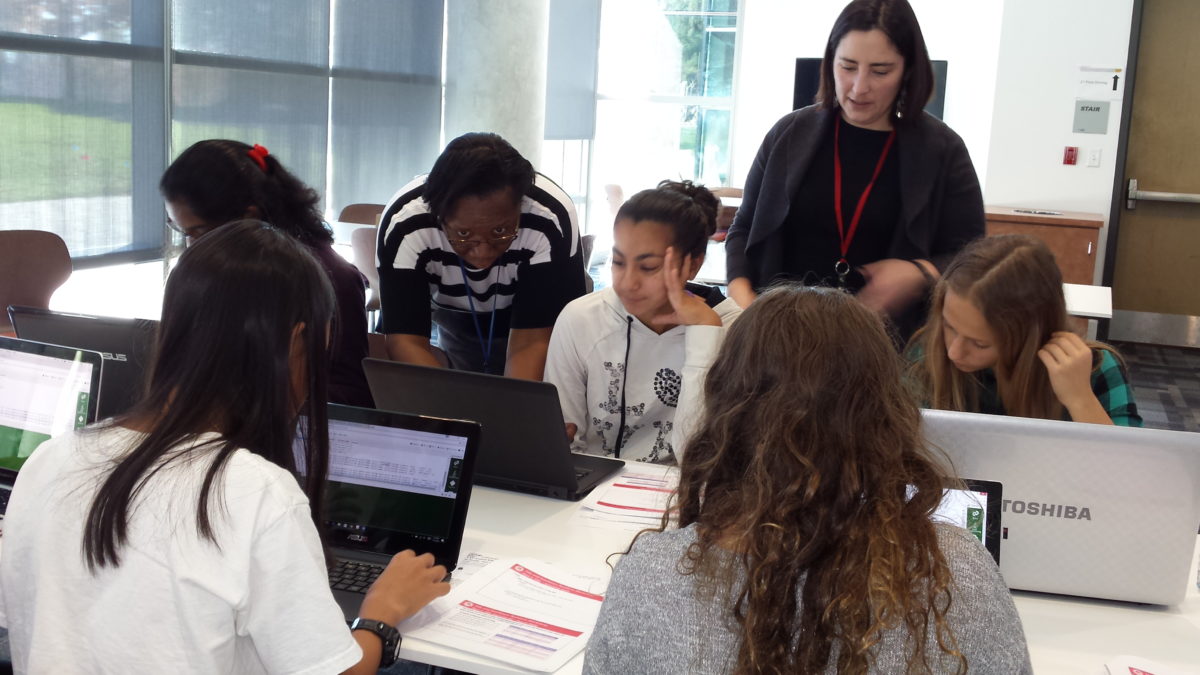- Hosting the annual CIAA basketball tournament for historically Black colleges and universities has contributed significantly to Baltimore’s economy, generating $81.7 million in total economic impact since 2022, while supporting over 1,300 jobs each year.
- Beyond athletics, the event includes programming focused on technology, finance, local businesses and education, with an emphasis on supporting Black-owned businesses through initiatives like scavenger hunts, tours and direct spending opportunities.
- Baltimore’s hosting contract for the tournament ends in 2026. While the city is bidding to extend its contract, competition from previous host cities means the tournament’s future location remains uncertain
An annual basketball tournament for historically Black colleges and universities has been a boon for Baltimore’s economy over the last few years, spurring millions in tax revenue and spending. That could all disappear after 2026.
The city hasn’t always hosted the Central Intercollegiate Athletic Association’s (CIAA) game series. The region, which first nabbed the contract to host the tournament in 2019, doesn’t even have any schools in the athletic consortium — the country’s oldest for historically Black colleges and universities.
Whether Baltimore or another region hosts the program after next year remains to be seen. Charlotte, North Carolina, which hosted the tournament from 2006 to 2020, submitted a bid for it to return after the Baltimore run ends in 2026.

Still, from the first Baltimore-based convening in 2022 (pushed from 2021 due to the Covid-19 pandemic) to the most recent one last month, the tournament has brought more to the majority-Black city than athletics, per Al Hutchinson, the president and CEO of the city’s tourism agency Visit Baltimore. Its programming includes a summit focused on technology, an all-day event focused on finances and local businesses, and a college fair for high school students.
“The tournament particularly uplifts Black-owned businesses, highlights our HBCU legacy,” Hutchinson wrote to Techncal.ly, “and adds to the vibrant mix of music, arts and culture that define Baltimore’s Black community.”
A local business boost that’s impossible to ignore
Capital is a big part of that lift: Baltimore saw $23.6 million in direct spending in 2024, part of $32.5 million in total economic impact. Direct spending includes what the Baltimore Sports and Tourism Development Council, CIAA and other affiliates spent on services like catering and security; plus what attendees spend on food or entertainment outside of the conference, according to Visit Baltimore.
Since 2022, the tournament has generated $81.7 million in total economic impact and funded an average of 1,326 jobs each year in hospitality, retail and entertainment. That impact includes $7.5 million in state and local taxes, Hutchinson said.
For comparison, Baltimore’s popular landmark art festival Artscape generated just a fraction of that economic impact: $6.77 million in 2024 and $12.1 million in 2023, per Barbara Hauck, the communications manager at the Baltimore Office of Promotion and The Arts. The organization’s data also said Artscape funded 78 jobs in 2023 and 44 jobs in 2024.
CIAA makes an effort to loop in local businesses through scavenger hunts and tours. There’s a focus on minority-owned business, per Hutchinson — 110 businesses participated in 2022, while 118 did in 2023 and 2024 each. Over those years, those businesses received a total of $3.7 million in direct economic benefit from the tournament.
Codetta Bake Shop on Llewelyn Ave. took part in the CIAA scavenger hunt for the first time this year, and its creator Sumayyah Bilal said she was proud to work with what she labeled a “vanguard” in Black culture.
“I think the CIAA tournament is one of those mainstays in the Black regional culture,” said Bilal. “We want to be involved with the CIAA for as long as it’s in Baltimore.”
There was also a tour of Black-owned restaurants that featured the locally acclaimed The Empanda Lady, run in Downtown Baltimore by Elisa Milan.
Taking part was an easy decision, said Milan. Visitors get a chance to win prizes, she gets business and it showcases Baltimore.
“As much profitability brings the city — life and light it shines on Baltimore,” Milan said, “to still just have fun, and engage, and catch the experience in Baltimore.”
A celebration of HBCUs — with none from Baltimore
There’s also involvement with institutions from the outskirts of the region.
The CIAA does not include Baltimore’s HBCUs. Morgan State University is instead part of the Mid-Eastern Athletic Conference, along with Coppin State University. Bowie State University in Prince George’s County is the tournament’s host institution and the conference’s closest school to Baltimore.
“The CIAA asks that any city interested in bidding for any of our championships align itself with a member institution to ensure our expectations are met,” said Marcus Clarke, the CIAA’s senior associate commissioner for championships and events.
“The city of Baltimore extended an invitation to Bowie State to serve as the host institution for our tournament,” he added. “Throughout that bid process, Bowie State was steadfast in its support of Baltimore serving as a host and has continued to serve on various planning committees to ensure the tournament’s success.
Looking ahead to 2027, CIAA Commissioner Jacqie McWilliams-Parker said she’s excited to start reviewing the bids for the next cycle, including Baltimore’s. She’s also a former basketball player at Hampton University in Virginia.
“I’m looking forward to the opportunity for our member institutions and our board to vet out probably some of the most amazing and competitive bids that we will ever see,” McWilliams-Parker said, “in this next bid cycle.”
Join our growing Slack community
Join 5,000 tech professionals and entrepreneurs in our community Slack today!
Donate to the Journalism Fund
Your support powers our independent journalism. Unlike most business-media outlets, we don’t have a paywall. Instead, we count on your personal and organizational contributions.

When global tech association CompTIA spun off its nonprofit arm, the TechGirlz curriculum went dark

Why are meetups so important for aspiring technologists? They offer a social roadmap

Key takeaways from CIAA’s Tech Summit House: AI, cyber, Black innovation and more



